Animals
-
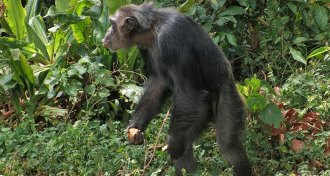 Humans
HumansChimpanzees show surprising flexibility on two feet
Chimpanzees’ upper-body flexibility while walking upright suggests ancient hominids walked effectively.
By Bruce Bower -
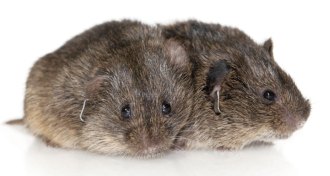 Animals
AnimalsWhat really changes when a male vole settles down
Bachelor prairie voles can’t tell one female from another, but saying “I do” means more than just settling down.
By Susan Milius -
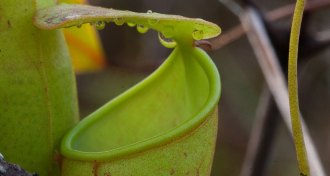 Plants
PlantsRaindrops help pitcher plants trap dinner
Pitcher plants use the force of falling raindrops to fling prey into their traps.
-
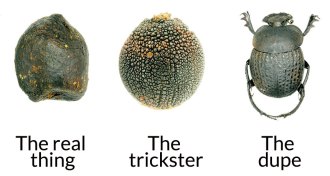 Plants
PlantsStinky seeds dupe dung beetles
Seeds that look and smell like animal poop can trick dung beetles into spreading and burying the seeds.
-
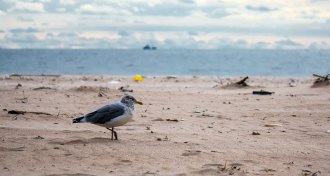 Animals
AnimalsWhat happens to animals in a hurricane?
Hurricanes can be devastating to animals on land and in the sea, but they can also provide opportunities.
-
 Animals
AnimalsThis may be the world’s tiniest snail
Tiny snail unearthed in China could be the world's smallest, researchers report.
-
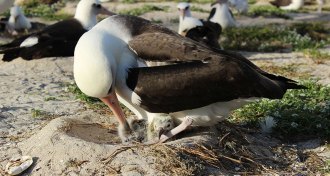 Animals
AnimalsSome seabirds will be hit hard by sea level rise
Seabird species that nest on low-lying islands in stormy winter months could see huge losses as sea levels rise, a new study finds.
-
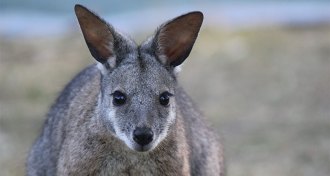 Animals
AnimalsLights at night trick wild wallabies into breeding late
Artificial lighting is driving wild tammar wallabies to breed out of sync with peak season for food
By Susan Milius -
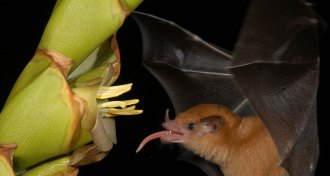 Animals
AnimalsSome bats chug nectar with conveyor belt tongues
Grooved bat tongues work like escalators or conveyor belts, transporting nectar from tip to mouth.
-
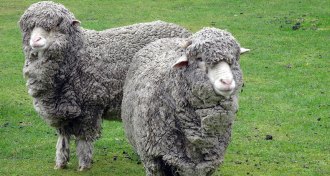 Animals
AnimalsMath describes sheep herd fluctuations
Scientists have developed equations to describe the motion of a herd of sheep.
-
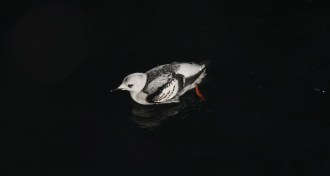 Animals
AnimalsLife in the polar ocean is surprisingly active in the dark winter
The Arctic polar winter may leave marine ecosystems dark for weeks on end, but life doesn’t shut down, a new study finds.
-
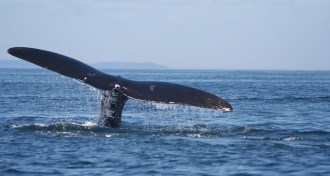 Animals
AnimalsDon’t judge a whale’s gut microbiome by diet alone
Evolutionary history and diet may both determine the microbes that live in a baleen whale's stomach, researchers report.